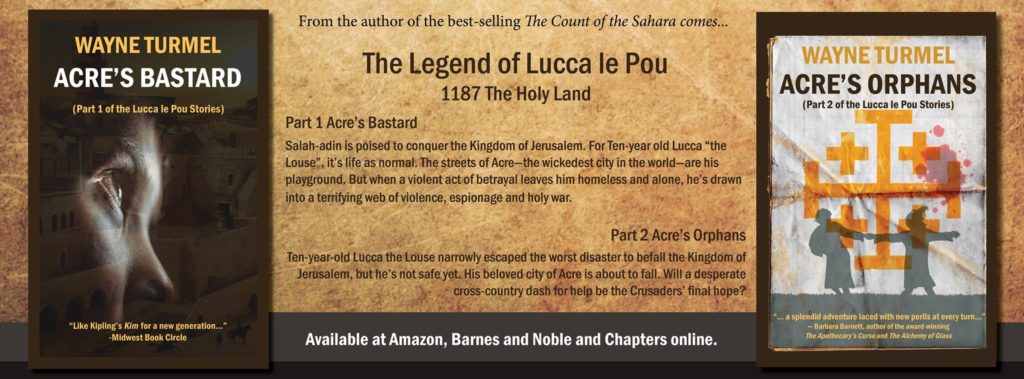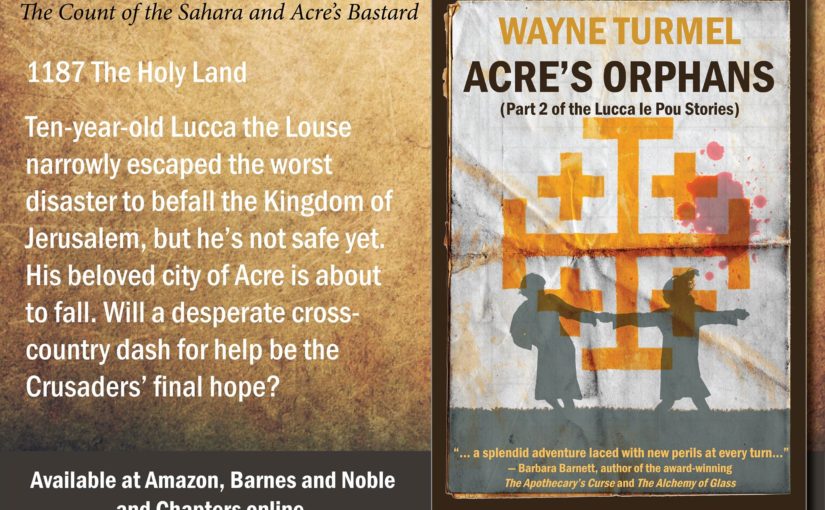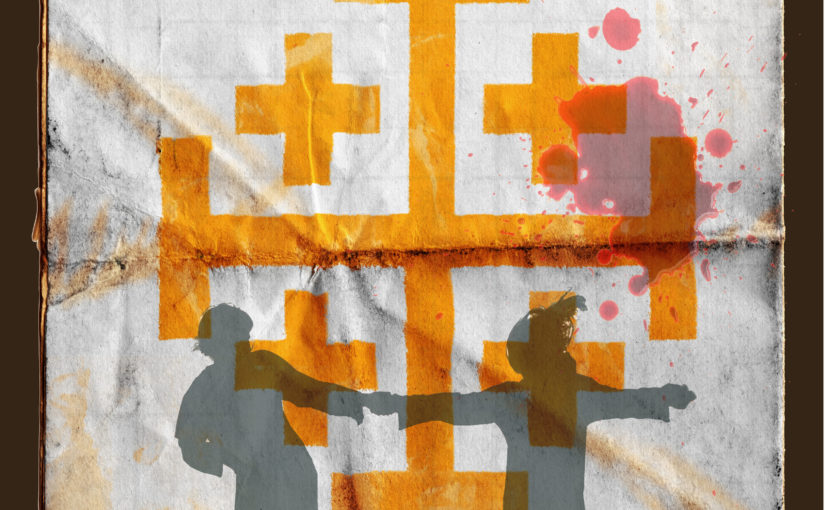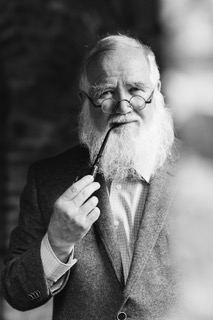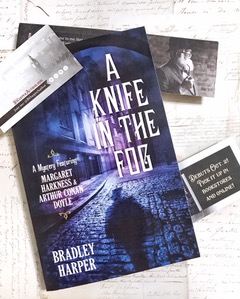Acre’s Orphans has been less than a week, so it’s too early to tell if anyone is actually going to buy it. But they ARE reading it. I know, because I’ve received some very kind words about it from people who win awards and stuff. Many of these are from terrific writers who have read, and
My writing friend Jeffrey Walker, author of the Sweet Wine of Youth series about the First World War, recently showcased me on his blog. (Read the interview here). His last book, Truly
Acre’s Orphans is another rollicking and gritty medieval romp for Wayne Turmel’s utterly incorrigible—yet grudgingly adorable—orphan-hero, Lucca Le Pou. A delightful read for any historical fiction devotee, Turmel manages to render up the decaying Kingdom of Jerusalem accessible, violent, and naughty enough to hook any YA reader, too. Who knew Hospitaller knights and leprous nuns could be so cool?
“Acre’s Orphans is an enjoyable excursion back to the battle for the Holy Land, contested by none other than the fierce but honorable Salah-Din. Ten-year-old Lucca the Louse has his hands full avoiding Saracen soldiers, merciless bandits, and a spy loyal to neither side but hoping to profit from both. The tale is faithful to history and the diverse culture of the region which exists up to the current day. The characters are well-drawn and the stakes are high when the boy is entrusted with an important message from the captured city of Acre, intended for the remnants of the Christian nobility along the northern coast, four days travel away. Accompanied by a giant Knight Hospitaller, a young Druze girl on the cusp of womanhood, and a leprous nun, Lucca must get his ragged party safely to Tyre, where an uncertain reception awaits them all.”
Another award-winner is Barbara Barnett. She’s an insanely smart person whose novel The Apothecary’s Curse was short-listed for the 2017 Stoker award. She was the first to tell me in documented form what she thought…
“A splendid adventure laced with new perils at every turn for the young hero at the heart of Turmel’s latest excellent foray into the heart of the Crusades.”
We don’t write for awards. We sure don’t write for the money, but we do write to be read. To have my words enjoyed by people all over the world, including those whose talent I respect is more than a little fun. Just thought I’d share.
If you haven’t ordered your copy of Acre’s Orphans, or haven’t read the first of Lucca’s adventures, they are available on Kindle or in Paperback wherever you get your fix.
And please, leave a review. It’s like applause for the author.
